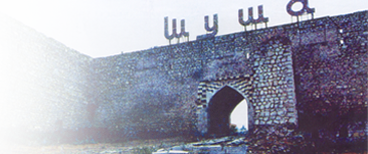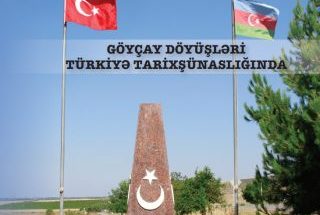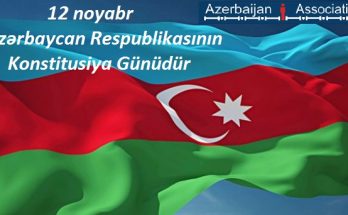 Permanent Representative of Azerbaijan to the United Nations Agshin Mehdiyev has sent letter to UN Secretary General Ban Ki-moon on the 18th anniversary of Khojaly Genocide.
Permanent Representative of Azerbaijan to the United Nations Agshin Mehdiyev has sent letter to UN Secretary General Ban Ki-moon on the 18th anniversary of Khojaly Genocide.
The letter says: The ongoing armed conflict between Armenia and Azerbaijan has resulted in the occupation of almost one-fifth of the territory of Azerbaijan and made approximately one out of every eighth persons in the country internally displaced or a refugee. The most serious international offences, such as war crimes, crimes against humanity and genocide, were committed in the course of the conflict.
In February 1992, an unprecedented massacre was committed against the Azerbaijani population in the town of Khojaly. This bloody tragedy, which became known as the Khojaly genocide, involved the extermination or capture of thousands of Azerbaijanis: the town was razed to the ground.
On the night of 25 and 26 February 1992, the Armenian armed forces, with the help of the infantry guards regiment No. 366 of the former Union of Soviet Socialist Republics, the personnel of which was composed mainly of Armenians, implemented the seizure of Khojaly. The inhabitants of Khojaly who remained in the town before the tragic night tried to leave their houses after the beginning of the assault in the hope to find a way to the nearest place populated by Azerbaijanis. But those plans failed. Invaders destroyed Khojaly and with particular brutality implemented carnage over its peaceful population. As a result, 613 civilians were killed, including 106 women, 63 children and 70 elderly. Another 1.000 people were wounded and 1.275 taken hostage. To this day, 150 people from Khojaly remain missing.
As news and accounts of the atrocity surfaced, the level of brutality was revealed: atrocities by Armenian troops included scalping, beheading, bayoneting of pregnant women and mutilation of bodies. Even children were not spared.
Armenian officials deny their responsibility for the crimes committed during the conflict, including against the population of Khojaly, airily falsifying facts and sharing their own interpretations of them, which deviate not only from reality, but also from elementary logic. Nevertheless, even the subtlest propaganda will never manage to disprove the facts that speak of a situation diametrically opposite to that represented by the Armenian side.
Apart from the considerable information in possession of the law enforcement agencies of the Republic of Azerbaijan, the responsibility of Armenia is documented also by numerous independent sources and eyewitnesses of this tragedy.
Western media reported with horror the killing of the innocent residents of Khojaly by indiscriminate Armenian gunfire and other brutal acts by invading troops.
In this cynical admission of culpability, Armenia’s then-Defense Minister and current President Serzh Sargsyan was quoted by the British journalist Thomas de Waal as saying: “[before Khojaly, the Azerbaijanis thought that…the Armenians were people who could not raise their hand against the civilian population. We were able to break that [stereotype]” (Thomas de Waal Black Garden, Armenia and Azerbaijan through Peace and War (New York and London. New York University Press, 2003), p. 172)).
Author Markar Melkonian would later describe in his book how some residents of Khojaly had nearly reached safety after feeling almost six miles but “[Armenian] soldiers chased them down”. The soldiers, he continues, “then unsheathed the knives they had carried on their hips for so long and began stabbing” (My Brother’s Road. An American’s Fateful Journey to Armenia (London and New York I. B. Tauris 2005). Pp 213 -214).
The facts mentioned above confirm that the intentional slaughter of the Khojaly town civilians 25 and 26 February 1992, including children, elderly and women was directed at their mass extermination only because they were Azerbaijanis. The Khojaly town was chosen as a stage for further occupation and ethnic cleansing of Azerbaijani territories, striking terror into the hearts of people and creating panic and fear before the horrifying massacre.
The genocide in Khojaly, along with other grave offences committed during the conflict between Armenia and Azerbaijan, entail the State responsibility of Armenia and the individual criminal responsibility of those who participated in said acts and their accomplices and accessories.
There can be no long-term and sustainable peace without justice. This requires consistent commitment by States towards their obligations to prosecute those responsible for breaches of international humanitarian law or international human rights law.In cases when such breaches constitute war crimes or crimes against humanity, or even genocide, for which universal jurisdiction is provided with regard to alleged offenders, it is important that pursuit of individuals is undertaken through either the domestic legal system of involved and third-party States or relevant international criminal institutions, as appropriate, while State responsibility is enforced through existing inter-State mechanisms.
Ending impunity is essential not only for the purposes of individual criminal responsibility for serious crimes, but also for peace, truth, reconciliation and the rights of the victims.
I should be grateful if you would have the present letter circulated as a document of the General Assembly, under agenda items 14 and 18 and of the Security Council.
Lent.az



